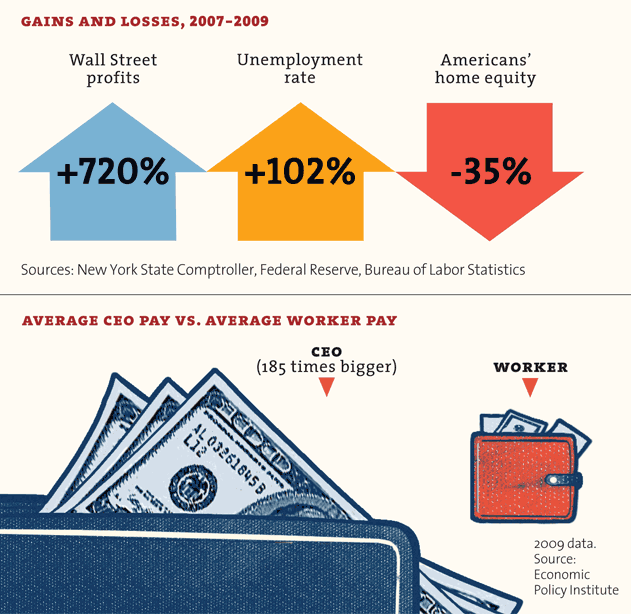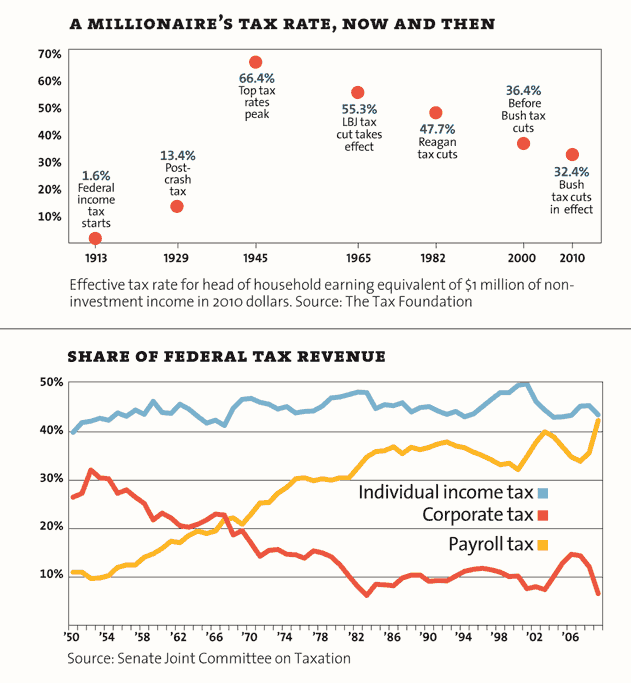I start my Legal Environment course with a class exercise where I anoint the class as the University “rulemakers” and then ask them to solve a campus problem (dealing with thousands of carelessly disposed chewing gum wads). Some of the suggestions are in the general vein of “law” (rules and enforcement) while other suggestions involve education, altering the physical environment, campus advocacy and appeals, or simply living with the problem. The point of the exercise is to have students consider both the potential and limitations of law as a means of solving problems. Recently there were two news items that caught my attention potential topics for a similar exercise. They involve real and substantial social “problems.” There may be pedagogical value in asking student to consider both the potential for and the limitations of employing “law” as a problem solving device.
First, Mother Jones magazine has published a series of charts that illustrate the mind-blowing increase in wealth disparity in the US. Visually presented in this manner, the “problem” is immediately obvious. Is there a potential role for “law” in addressing this issue? Why or Why not? Discuss.
Second, the Tribune newspapers ran an article about recurring drug shortages in hospitals . According to the article, these shortages are prevalent, come on without warning, and cause doctors to use older drugs as substitutes – some that predate the doctors’ medical practices and, therefore, with which they have no experience. Is there a potential role for “law” in addressing this issue? Why or Why not? Discuss.
Source of charts below: Mother JonesOUT OF BALANCE
A Harvard business prof and a behavioral economist recently asked more than 5,000 Americans how they thought wealth is distributed in the United States. Most thought that it’s more balanced than it actually is. Asked to choose their ideal distribution of wealth, 92% picked one that was even more equitable.

WINNERS TAKE ALL
The superrich have grabbed the bulk of the past three decades' gains.

YOUR LOSS, THEIR GAIN
How much income have you given up for the top 1%?

WHO IS WINNING?
For a healthy few, it's getting better all the time.


Videos on drug shortages:
No comments:
Post a Comment